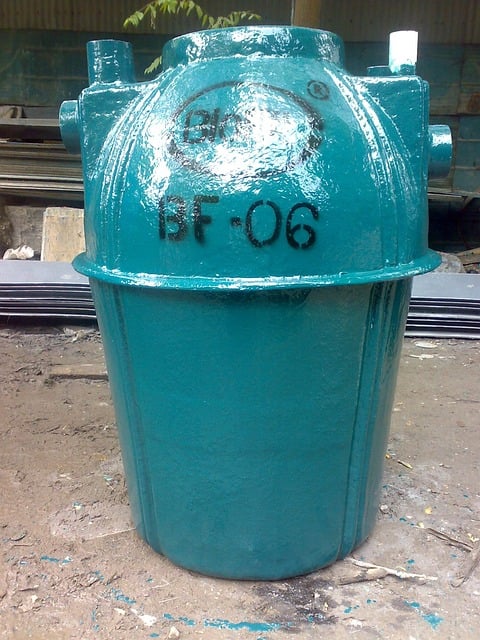Septic system failures, though preventable, are common due to neglect, debris buildup, excessive water usage, and improper disposal. Homeowners should prioritize regular maintenance, including annual inspections, monitoring water usage, and professional pumping every 3-5 years, to avoid clogs, improve efficiency, and prevent costly repairs. Early detection and proper upkeep are key to maintaining a healthy septic system.
“Uncover the secrets to keeping your septic system in top condition! This comprehensive guide explores the common causes of failures and offers valuable insights into preventive measures. From understanding the inner workings of your septic system to identifying early warning signs, you’ll learn effective strategies for optimal maintenance. Discover how simple routine care can prevent costly repairs and ensure a healthy, efficient septic system. Get ready to take control and enhance your septic system’s longevity.”
- Understanding Septic System Failures: Common Causes
- Preventive Measures for Maintaining Your Septic System
- When to Call a Professional for Septic Repairs
Understanding Septic System Failures: Common Causes

Septic system failures are common issues that can arise from various causes, many of which are preventable through proper septic system maintenance. Understanding these root causes is crucial for homeowners to ensure their systems operate efficiently and extend their lifespan. One of the primary reasons for failure is lackadaisical care and regular inspection. Septic tanks require consistent monitoring for any signs of damage, leaks, or blockages. Over time, organic debris can accumulate, leading to system clogs and reduced efficiency.
Another significant cause of septic system failures is excessive water usage. High-volume water consumption can overwhelm the tank, causing it to fill up too quickly and leading to improper treatment. Additionally, introducing inappropriate materials into the septic system, such as non-biodegradable products or large solid waste items, can disrupt the natural balance and result in clogs and damage. Regular maintenance, including pumping and cleaning, is essential to prevent these issues.
Preventive Measures for Maintaining Your Septic System

Regular maintenance is key to preventing septic system failures. Schedule routine inspections at least once a year to ensure everything is functioning optimally. During these visits, professionals can identify potential issues early on and provide recommendations for repair or replacement. Simple practices like avoiding disposal of non-biodegradable materials, such as grease, coffee grounds, and sanitary products, can also significantly reduce the risk of clogs and damage.
Additionally, proper care includes keeping an eye on water usage, especially during peak times, to avoid overwhelming the system. Planting trees and shrubs at a safe distance from the septic tank helps prevent roots from infiltrating and causing damage. Finally, enlisting professional assistance for septic pumping every 3-5 years ensures the tank remains clean and free from buildup, promoting longevity and efficient operation of your septic system maintenance.
When to Call a Professional for Septic Repairs

If you notice persistent clogs, unusual odours, or low water pressure in your home, it might be an indication that something is amiss with your septic system. In such cases, it’s crucial to act swiftly and call a professional for septic repairs. Regular septic system maintenance is essential to prevent failures, so don’t ignore these warning signs.
Professionals are equipped with the necessary tools and expertise to diagnose complex issues. They can identify problems like blocked pipes, broken parts, or damage to the septic tank and drainfield, which often require immediate attention to avoid further complications. Timely intervention can save you from costly repairs and potential environmental hazards associated with septic system failures.
Septic system failures can be costly and inconvenient, but proactive maintenance can prevent these issues. By understanding common causes like clogs, excess water, and lack of regular pumping, you can take effective preventive measures to ensure your septic system’s longevity. Regular inspections, proper waste disposal, and timely pumping are key to maintaining a healthy septic system. Remember, prompt action on signs of trouble is crucial, and knowing when to call a professional for repairs can save you from bigger problems down the line. With proper care, your septic system can efficiently serve your property for years to come, contributing to a more sustainable and eco-friendly lifestyle.
